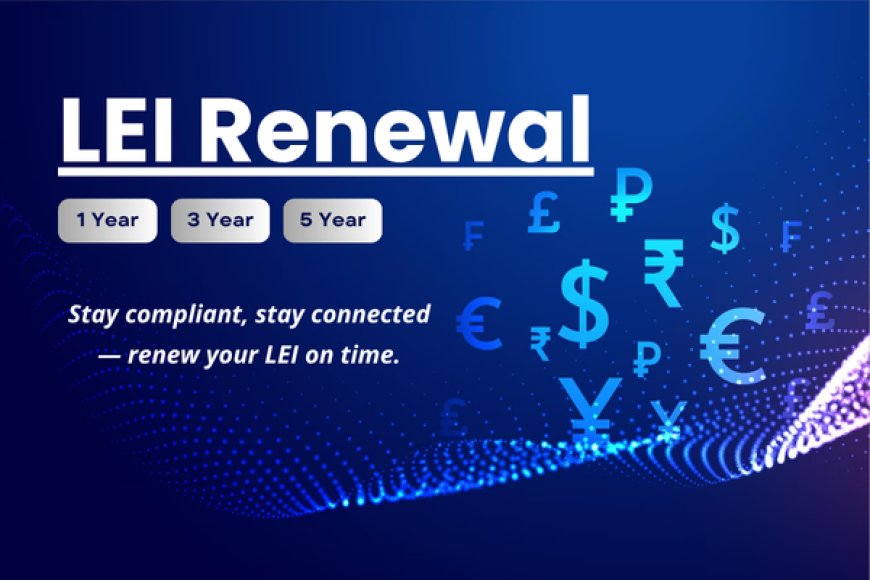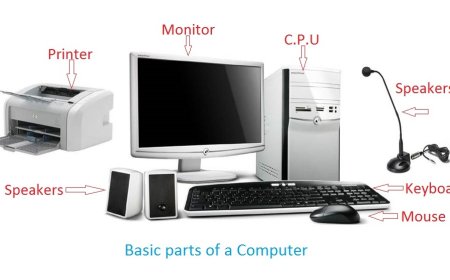Understanding LEI Code Renewal: Compliance and Duration Options Explained

In today's increasingly regulated financial landscape, Legal Entity Identifiers (LEIs) play a critical role in enhancing transparency and reducing systemic risks. For any legal entity engaging in financial transactions, maintaining an active and valid LEI is not just a recommendationit's a regulatory necessity. However, acquiring an LEI is not a one-time process. It requires periodic renewal to ensure data accuracy and ongoing compliance. This article explores the key aspects of LEI code renewal, available options for 1, 3, and 5-year renewals, and the compliance requirements entities must fulfill to remain in good standing.
What Is an LEI and Why Is It Important?
A Legal Entity Identifier (LEI) is a unique 20-character alphanumeric code that identifies distinct legal entities participating in financial transactions globally. The LEI system was introduced after the 2008 financial crisis to improve the quality and accuracy of financial data systems for better risk management.
LEIs are mandated by multiple regulatory bodies worldwide, including the European Securities and Markets Authority (ESMA), the U.S. Commodity Futures Trading Commission (CFTC), and the Reserve Bank of India (RBI), among others. Entities failing to maintain an active LEI may face penalties, trade restrictions, or regulatory non-compliance issues.
The Necessity of LEI Code Renewal
An LEI is valid for one year from the date of issuance or last renewal. To maintain its validity, entities must go through the LEI code renewal process annually unless they opt for a multi-year renewal.
The Global Legal Entity Identifier Foundation (GLEIF), which oversees the LEI system, requires that the data associated with each LEI remains current and accurate. Hence, regular renewal is essential for:
-
Ensuring compliance with regulatory mandates
-
Maintaining trust with business partners and financial institutions
-
Preventing data discrepancies and transaction rejections
Failure to renew an LEI on time can lead to its status becoming Lapsed, which may restrict the entity from conducting regulated financial activities.
LEI Code Renewal Options: 1-Year, 3-Year, and 5-Year Plans
Organizations can choose from various LEI code renewal options depending on their operational needs, budgetary considerations, and compliance strategies. Below is a breakdown of the three primary renewal durations:
- 1-Year LEI Code Renewal
This is the most common option and is ideal for entities seeking flexibility in their compliance processes.
Advantages:
-
Lower upfront cost
-
Annual data validation keeps entity records current
-
Easy to switch LEI service providers annually if desired
Compliance Requirements:
-
Annual confirmation of entity data (legal name, address, ownership)
-
Submission of updated documentation if any changes have occurred
-
Ensuring the renewal is completed before the expiry date to avoid lapsing
This option is particularly suitable for startups or small businesses with dynamic operations and frequent changes in ownership or structure.
- 3-Year LEI Code Renewal
A 3-year LEI code renewal is a mid-term option designed for entities seeking a balance between cost-efficiency and operational convenience.
Advantages:
-
Saves time and administrative effort by reducing the frequency of renewals
-
Lower cost per year compared to annual renewal
-
Continuous LEI validity with automatic updates handled by the service provider
Compliance Requirements:
-
Initial validation of entity data at the start of the term
-
The service provider ensures data remains accurate through annual verification with public databases
-
Entities must inform the provider of any material changes during the 3-year period
This plan is ideal for medium-sized enterprises with relatively stable operations and limited structural changes.
- 5-Year LEI Code Renewal
The 5-year renewal is designed for large corporations, financial institutions, and entities with consistent operational structures.
Advantages:
-
Maximizes cost savings with the lowest per-year rate
-
Eliminates the need for annual manual renewals
-
High compliance assurance with automated data monitoring
Compliance Requirements:
-
Comprehensive data verification at the time of initial renewal
-
Ongoing monitoring by the LEI Registration Agent or Local Operating Unit (LOU)
-
Mandatory notification by the entity in case of significant changes such as mergers, name changes, or change of ownership
This plan benefits entities with minimal administrative capacity to manage yearly renewals but with a strong focus on regulatory compliance.
Compliance Requirements for LEI Code Renewal
Regardless of the renewal duration chosen, certain compliance requirements must be met to ensure the LEI remains in good standing.
1. Accurate and Up-to-Date Entity Information
Entities must ensure all detailssuch as registered legal name, address, country of incorporation, and ownership structureare up to date. Any discrepancies can delay the renewal process or lead to the rejection of the renewal request.
2. Provision of Supporting Documentation
Depending on the jurisdiction, entities may need to provide official documents to verify changes. These may include:
-
Certificate of Incorporation
-
Articles of Association
-
Government-issued identification documents
-
Proof of address or ownership
3. Renewal Before Expiry
GLEIF mandates that LEIs must be renewed before they expire to avoid lapsing. Some platforms offer automated reminders and renewal services to assist with timely compliance.
4. Compliance with Local Regulatory Bodies
In certain countries, LEI renewal must comply with additional local regulations. For example, Indian companies must ensure alignment with SEBI or RBI guidelines, while European companies must comply with MiFID II/MiFIR regulations.
5. Data Level 1 and Level 2 Requirements
-
Level 1 data includes legal information such as name and registered address.
-
Level 2 data relates to ownership structurewho owns whom.
Entities must validate both levels of data during the renewal process to meet the transparency objectives of the LEI system.
Consequences of Failing to Renew an LEI
Allowing an LEI to lapse can have serious consequences:
-
Regulatory Non-Compliance: Entities may face fines or be barred from trading in regulated markets.
-
Operational Disruption: Financial institutions may reject transactions involving a lapsed LEI.
-
Loss of Business Trust: A lapsed LEI can signal poor governance, affecting business relationships.
-
Higher Renewal Fees: Some providers charge extra for renewing expired LEIs, making the process costlier.
To avoid these risks, entities should proactively plan their LEI code renewal well in advance of the expiry date.
Choosing the Right LEI Service Provider
When selecting a service provider for LEI code renewal, consider the following:
-
Accreditation: Ensure the provider is either a GLEIF-accredited Local Operating Unit or a registered Registration Agent.
-
Support: Look for providers offering renewal reminders, document assistance, and compliance updates.
-
Security: Confirm the provider has robust data protection and privacy policies.
-
Pricing Transparency: Choose providers that offer clear pricing for 1, 3, and 5-year plans with no hidden fees.
-
Automation: Many providers offer automated renewal services, minimizing manual effort.
Final Thoughts
LEI code renewal is a vital aspect of regulatory compliance and operational credibility for any legal entity engaged in financial transactions. Whether opting for a 1-year, 3-year, or 5-year renewal, entities must ensure that their data is accurate, their documentation is complete, and their renewal is completed well before expiry.
Proactive management of the LEI lifecycle not only helps in staying compliant with global regulations but also contributes to enhanced transparency, reduced counterparty risk, and improved market efficiency. Choosing the right duration and provider for LEI code renewal can make all the difference in ensuring seamless operations and regulatory harmony.





























